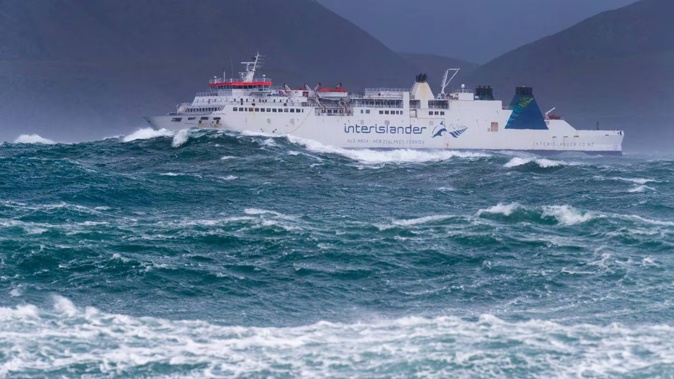
The Government has declined KiwiRail’s request for an extra $1.47 billion for portside infrastructure needed for Cook Strait’s new mega-ferries.
KiwiRail says it cannot proceed without further Government funding and its board will now oversee the wind-down of the project and review plans for the Cook Strait connection.
KiwiRail was replacing its increasingly unreliable and ageing Interislander fleet with two new rail-enabled ferries under the Inter-island Resilience Connection project (iReX). The last publicly available cost estimate for the new ferries and the portside infrastructure was $1.45b.
Finance Minister Nicola Willis revealed this afternoon that cost has doubled.
She said KiwiRail had requested an additional $1.47b, a component of which had been agreed to in-principle by the previous government, to address cost escalations related to harbourside infrastructure.
Willis said the Government has declined the request to contribute the significant additional funding.
”The Government remains committed to a resilient, safe and reliable Cook Strait connection, but the cost of this project has almost quadrupled since 2018 to approximately $3b,” she said.
She said only a fifth of the total cost was now associated with the core project of replacing the ageing ferries.
”Ministers do not have confidence that there will not be further increases and are concerned about the continued significant cost blow-outs and the changing nature of the investment they are being asked to make.
”Furthermore, agreeing to KiwiRail’s request would reduce the Government’s ability to address the cost pressures that are impacting on New Zealanders, fund other essential projects and get the Crown’s books back in order.”
- Grant Robertson fires back at Nicola Willis over Cook Strait ferry budget blowout
- 'KiwiRail must be s***ing themselves': Cook Strait ferry cost blowout lands with Nicola Willis
KiwiRail board chairman David McLean acknowledged the disappointment of their team and stakeholders involved in the project.
“We sought a strong outcome for New Zealand through this project for a more resilient State Highway 1 across Cook Strait for exporters, domestic freight forwarders, tourism and domestic commuters.
“We will work with the Government, our customers, ports and other stakeholders on the way forward. An alternative suitable long-term solution could take years to develop.”
McLean said KiwiRail will continue to invest in the safety and reliability of the existing Interislander fleet, through strong asset management practices., in the interim.
Willis said the Interislander issues were first brought to her attention during the post election caretaker period of government when we they asked to authorise a draw down contingency fund to keep the project going.
”Questions we asked about the project [and] at that point revealed massive cost blowouts that had not been known to us or the public until that point.
“We can also raise significant questions about the deliverability of the project and taking office and being sworn in as the Minister of Finance, I received a briefing from KiwiRail which revealed a further cost blowout beyond that revealed to me during the period at that time and at that time KiwiRail made a request for additional funding.”
Willis said at the same time as KiwiRail was asking for the additional funding to be provided urgently officials were also advising the Government that putting more money into the project would make it harder to withdraw at a later date.
Ministers sought advice from Treasury, the Ministry of Transport and KiwiRail, Willis said.
”KiwiRail advised that there were no options that would recommend to reduce the scale event or the cost of the project. Treasury and the Ministry of Transport advised us not to agree to the funding request.”
Willis said it was a “very difficult situation” for the incoming government to find itself in.
”It is absolutely one of the financial states that was left behind by the outgoing government.
”We want a resilient, safe and reliable Cook Strait service and we are committed to ensuring that is available to New Zealanders.”
Willis said it would be “irresponsible for us to continue funding the project” after it “diverted so widely in scope and cost from the original proposal”
”A resilient ferry service should not be an open cheque book paid for by the taxpayer.
”We have a responsibility to ensure the public gets good value for money.”
Willis said it was a hard decision but the right one.
”And as a result of this decision, KiwiRail Board has informed me that it will wind down the project and review its plans for the Cook Strait connection.”
Ministers will now work with KiwiRail and officials on alternative options.
Georgina Campbell is a Wellington-based reporter who has a particular interest in local government, transport, and seismic issues. She joined the Herald in 2019 after working as a broadcast journalist.
Take your Radio, Podcasts and Music with you









